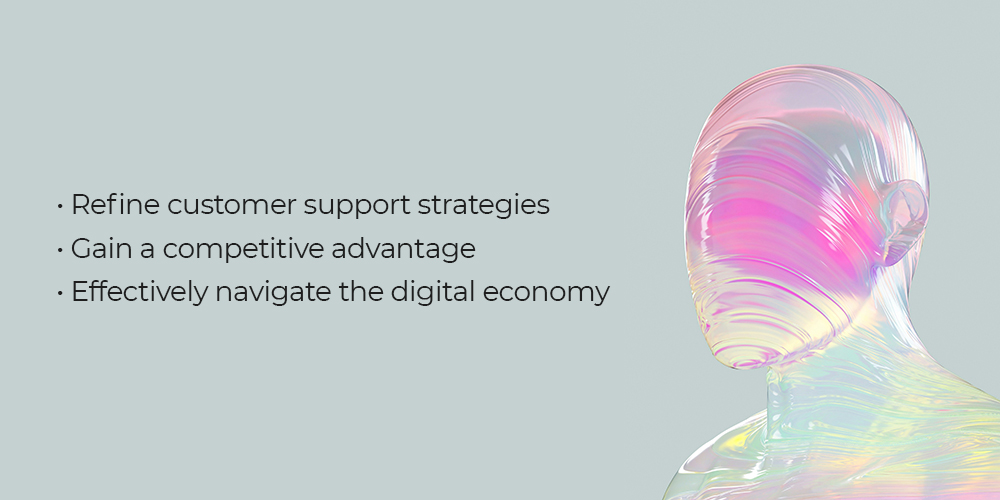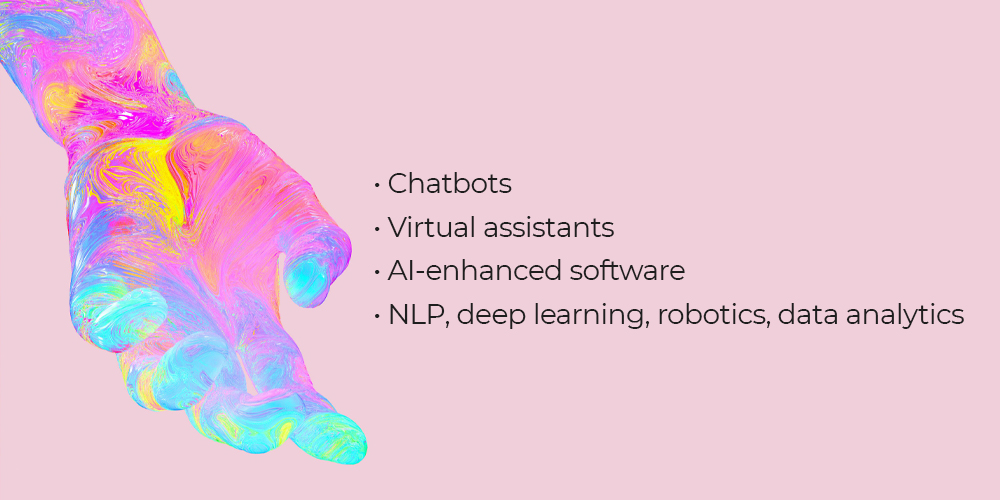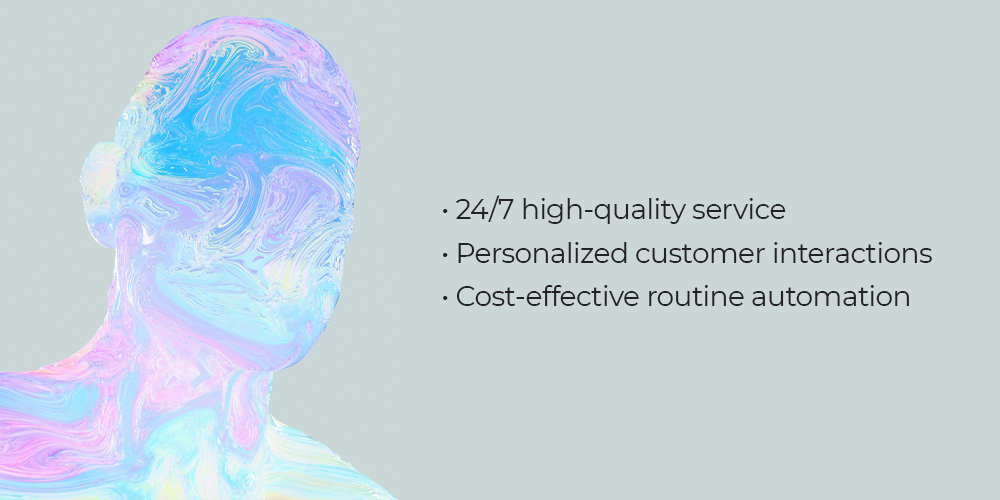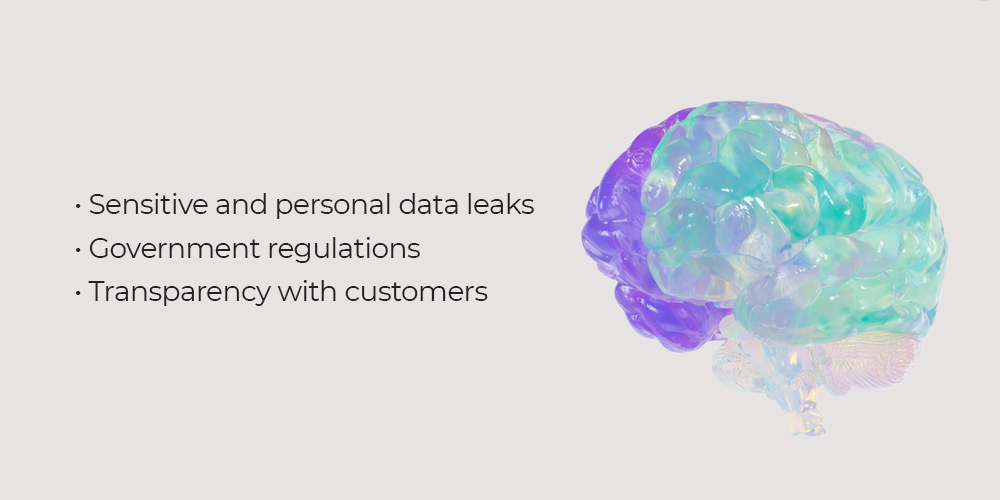The advent of AI-enabled agent assistance marks a pivotal evolution in customer service, introducing a level of automation and sophistication that was once the stuff of science fiction. Today, artificial intelligence is not just an auxiliary tool but a fundamental component of customer service strategies across various industries. This transformation is driven by AI’s ability to handle complex interactions with speed and accuracy, revolutionizing how companies engage with their customers.
What is AI Agent Assist?
AI-enabled agent assistance leverages cutting-edge technologies to enhance the capabilities of customer service agents. These AI systems, including chatbots, virtual assistants, and more advanced AI-driven interfaces, are designed to automate routine tasks, provide instant customer responses, and support human agents with complex queries.
By processing natural language and utilizing machine learning to learn from interactions, these AI agents can deliver personalized, context-aware assistance, making them invaluable in managing the high volume and variety of customer interactions typical in today's digital age.
Evolution of Customer Service Technologies
The journey from manual, in-person customer service to AI-enabled solutions has been transformative. Initially, businesses relied on face-to-face interactions or simple telephone calls to address customer needs. As technology advanced, the rise of the internet and digital communication channels led to the adoption of email and live chat support.
The introduction of AI and automation has been the latest step in this evolution, following the growing need for more efficient, scalable, and personalized customer service solutions. Each stage has progressively enhanced the ability of businesses to meet customer expectations more efficiently and effectively.
Importance of AI in Modern Customer Service Strategies
In modern customer service strategies, AI plays a crucial role in balancing efficiency with personalized customer experiences. The deployment of AI agents allows businesses to handle routine inquiries without human intervention, freeing up human agents to tackle more complex and sensitive issues.

This not only optimizes resource allocation but also improves the overall customer experience by reducing wait times and providing tailored support. Furthermore, AI's data processing capabilities enable businesses to glean insights from customer interactions, helping to refine strategies and predict future needs.
This predictive capability ensures that businesses remain proactive rather than reactive, a key to maintaining competitive advantage in a customer-driven market.
AI-enabled agent assistance is rapidly becoming a cornerstone of effective customer service strategies, signifying a shift towards more interactive, immediate, and intelligent customer service solutions. As businesses continue to navigate the challenges of a digital economy, AI stands out as a vital tool in their arsenal, promising to reshape the landscape of customer interaction for years to come.
Looking for AI developers?
We create AI software — and we do it well. Talk to us to get your project started today
The Mechanics of AI-Enabled Agent Assistance
Understanding the mechanics behind AI-enabled agent assistance is essential for comprehending how it transforms customer service interactions. This section explores the definition, types, and core technologies that drive these sophisticated systems.

Definition and Scope
AI-enabled agent assistance refers to the application of artificial intelligence technologies to support and enhance the capabilities of customer service agents. This assistance is designed to automate interactions, handle routine tasks efficiently, and provide decision support for more complex service decisions. It encompasses a range of solutions, from simple automated responses to complex decision-making tools that can adapt and learn from each interaction.
Types of AI Agents
AI agents in customer service primarily fall into several categories, each serving unique functions:
- Chatbots: These are the most common form of AI agents, designed to simulate conversational interactions with users via text. They handle inquiries by interpreting user inputs and delivering appropriate responses based on a predefined set of instructions or learned data.
- Virtual Assistants: More advanced than chatbots, virtual assistants understand and execute a variety of tasks, such as scheduling appointments or providing detailed customer support, by understanding natural language and learning from user behaviors.
- AI-Enhanced Software: This includes systems integrated into customer service platforms that analyze data, predict outcomes, and suggest solutions to human agents, thereby enhancing their productivity and decision-making capabilities.
Core Technologies Used
The effectiveness of AI-enabled agent assistance is grounded in several core technologies that enable sophisticated functionalities:
- Natural Language Processing (NLP): NLP is pivotal for allowing AI agents to understand and generate human language. This technology involves syntax analysis, semantics, discourse, and pragmatics to process and make sense of the input received from human interactions.
- Machine Learning and Deep Learning: These forms of artificial intelligence provide the basis for pattern recognition, learning, decision-making, and prediction. Machine learning algorithms adjust their responses based on feedback and new data, improving their accuracy over time, while deep learning, a subset of ML, uses neural networks with many layers of processing units, enhancing the ability of AI agents to process complex data inputs and learn from them extensively.
- Automation and Robotics: Automation in AI agent assistance refers to the capability of AI systems to handle tasks without human intervention, which is crucial for managing large volumes of interactions. Robotics, although less commonly directly integrated into customer service, can also play a role in physical tasks associated with customer support in retail and hospitality.
- Data Analytics: This technology processes and analyzes large sets of data to glean insights about customer preferences, behavior patterns, and feedback. These insights inform continuous improvements in AI responses and service strategies, ensuring that the services provided are aligned with customer expectations and needs.
Together, these technologies form the backbone of AI-enabled agent assistance, enabling systems to perform tasks ranging from simple question answering to complex problem solving and personalization of customer interactions. This intricate interplay of technology not only streamlines operations but also enhances the customer experience by making interactions more relevant, timely, and personal.
Integration of AI Agents in Customer Service
The successful integration of AI agents into customer service is not merely about deploying new technology; it involves careful planning, setup, and alignment with existing systems to ensure seamless operation and optimal use of AI capabilities. This section will explore the initial setup, necessary infrastructure, and integration challenges associated with implementing AI agents in customer service.

Setup and Deployment
Integrating AI agents begins with a strategic assessment of the organization's needs and customer service goals. The initial setup involves selecting the right type of AI agent—whether a basic chatbot for handling FAQs or a more complex virtual assistant capable of performing multiple functions like scheduling and personalized assistance. Once the type of agent is decided, the deployment process includes the following stages:
- Requirements Gathering: This step involves identifying the specific needs that the AI agent needs to fulfill, such as reducing response times, handling after-hours queries, or managing large volumes of routine questions.
- Technology Selection: Depending on the requirements, decision-makers will select appropriate technologies and platforms that can support the desired types of AI interactions. This selection is crucial as it determines the capabilities and limitations of the AI agent.
- Infrastructure Development: Before deployment, the necessary infrastructure must be established. This includes hardware for running the AI systems, especially if the solution is hosted on-premises, and software infrastructure, such as APIs and SDKs, for integrating AI solutions with existing customer service platforms.
- Pilot Testing: Implementing a pilot project can help in understanding how well the AI agent interacts with real customers and existing systems. It also helps in identifying any issues or gaps in service that need to be addressed before full-scale deployment.
- Training and Tuning: AI agents require training on the specific data relevant to the company’s services. This training involves feeding the system with historical data, typical customer queries, and other relevant information to ensure that the AI understands context and can handle real-life customer interactions effectively.
Integration with Existing Customer Service Platforms
AI agents must work in harmony with existing customer service platforms to truly enhance service delivery. This integration involves several considerations:
- Compatibility: The AI technology must be compatible with existing customer service software. This may require custom integrations or the use of middleware to ensure smooth data flow between systems.
- Data Synchronization: AI agents rely heavily on data to function effectively. Ensuring that they have access to up-to-date customer data from other systems is critical. This means integrating with CRM systems, databases, and even social media platforms where customers interact with the business.
- Channel Integration: Customers interact with businesses across various channels—email, social media, live chat, and phone. AI agents should be integrated in a way that they can operate across these channels seamlessly, providing a unified customer experience regardless of the interaction point.
- Feedback Mechanisms: To continuously improve AI performance, feedback mechanisms should be integrated into the customer service workflow. These mechanisms help gather real-time data on AI effectiveness and customer satisfaction, facilitating ongoing optimization of the AI systems.
Integrating AI agents into existing customer service frameworks is a complex but rewarding endeavor. It not only enhances operational efficiencies but also elevates the customer service experience by providing faster, more accurate, and personalized service. By understanding the technical and strategic requirements of AI integration, businesses can better prepare to embrace this transformative technology.
AI-Enabled Agent Assistance: Case Study
We at Businessware Technologies focus on developing cutting-edge AI applications, including systems that help companies introduce AI into their customer service operations.
AI Database Search Chatbot For Customer Service And Employee Training
We were approached by a large business looking to transform the way employees interact with an internal knowledge database.
The company approached us to develop a smart search system for the database which would help employees find information faster to respond to customer queries faster and make employee training more effective.
The chatbot-like search module lends itself perfectly to the use of natural language processing models. However, given the confidential nature of the information stored in the database, using models like ChatGPT is not an option due to data leaking concerns. We have implemented multiple smaller language models which perform just as good in this particular application and lack the data security concerns of ChatGPT.
.png)
When a user asks a question, the system uses a retrieval language model which looks for parts of text which might contain the answer. After the texts have been located, a reranking model ranks them in order of relevance. The system can also combine text from multiple documents to provide a complete answer.
Benefits of AI-Enabled Agent Assistance
AI-enabled agent assistance brings a host of benefits to customer service operations, significantly boosting efficiency and scalability. By automating interactions and ensuring continuous service, these AI systems help businesses manage customer expectations more effectively and at a larger scale.

Efficiency and Scalability
One of the standout benefits of AI-enabled agent assistance is its ability to handle an exceptionally high volume of customer interactions simultaneously. Traditional customer service setups, limited by human agent capacity, often struggle with high traffic periods, leading to increased wait times and customer dissatisfaction. AI agents, however, can engage with hundreds or even thousands of customers at once, across various platforms and channels, without compromising the quality of service.
Personalization and Customer Satisfaction
The deployment of AI-enabled agent assistance goes beyond mere efficiency and operational scalability; it deeply enhances the personalization of customer interactions, which is a key factor in boosting customer satisfaction and loyalty.
AI technologies, particularly those leveraging machine learning and data analytics, excel at identifying patterns and preferences in customer behavior. By analyzing vast amounts of interaction data, AI agents can predict customer needs and tailor their responses accordingly. This capability not only makes the customer feel understood but also enhances the effectiveness of the service provided.
Cost Reduction
One of the most direct benefits of AI-enabled agent assistance is the cost savings associated with the automation of routine tasks. AI agents can handle standard queries, process transactions, and manage appointments without human intervention, which significantly reduces the labor costs associated with these tasks. Automation allows businesses to reallocate their human resources to more complex and high-value activities, optimizing their workforce and reducing overall operational costs.
AI Data Security Concerns
While AI-enabled agent assistance offers numerous benefits, it also presents a set of challenges that organizations must navigate carefully. Among these, privacy and security are paramount, especially as businesses handle increasingly sensitive customer data.

The integration of AI in customer service involves the collection, analysis, and storage of vast amounts of personal data. This data can include everything from basic contact information to more sensitive details like payment methods, purchase history, and personal preferences.
Handling this data responsibly is crucial not only for maintaining customer trust but also for complying with stringent data protection regulations such as GDPR in the European Union or CCPA in California.
Effective data handling procedures are essential to ensure that customer information is kept secure and used ethically.
Organizations must establish robust data governance frameworks that define how customer data is collected, stored, accessed, and disposed of. These frameworks help prevent data breaches and ensure transparency with customers about how their information is used.
How To Choose An AI Development Company
There are multiple steps you can take to make a well-informed decision when it comes to hiring a AI development company:
- Take a look at platforms like Clutch, Manifest, Upwork and Goodfirms to read client reviews and testimonials to get a better idea of past company projects and overall customer satisfaction,
- Analyze the size of the vendor as large companies are more likely to have enough resources to provide a dedicated team for your project when compared to smaller vendors,
- It is important to have a clear understanding whether your outsourcing provider complies with local and international standards like HIPAA, ISO, PCI, and has data security protocols and solid security policy in place,
- Ask your potential vendor the right questions to be sure that the provider is reliable. Compile a list of questions that you can ask a software development outsourcing company that will help you get all the important information about the vendor. Questions like “Has your company received any industry awards?” and “Do you have experience working with companies of our size and in our industry?” will help you understand the company’s market presence and its average client. Questions like “How do you ensure information security in the workplace?” and “Do you have a comprehensive disaster recovery plan?” will get you an understanding of the company’s facilities and the security practices,
- Take a look at a company’s portfolio on their website, platforms like Clutch or Goodfirms, or ask the provider directly for a portfolio of successfully delivered computer vision projects,
- Evaluate the tech stack the company works with and assess the skills of its computer vision developers:
- 2-5 years of experience in the field of artificial intelligence development,
- Experience with data science, cloud development, AI system development, big data,
- Technical stack: Tesseract, Python, OpenCV, TensorFlow, Cafe, etc.,
- Experience in the development of machine learning models as well as creating and balancing datasets,
- History of working with object recognition, natural language processing, OCR.
Describe your idea and get an estimation for your AI project
Contact UsWhy choose Businessware Technologies as your software development company?
- Businessware Technologies is a reliable AI development vendor: it has been recognised as one of the top software development companies by Clutch and Manifest, it is a Top Rated Plus agency Upwork, and has received local awards for its excellent work,
- A team of over 70 highly skilled software engineers with extensive experience in developing complex software for both startups and Fortune 500 companies,
- Deep expertise in modern AI technologies and approaches to system development, like data science, machine learning, OpenCV, Python, Tesseract, and many more,
- Businessware Technologies is a Microsoft Gold Certified partner,
- Businessware Technologies is compliant with GDPR, ISO 9001, ISO 27001 standards,
- Businessware Technologies works with Fortune 500 companies and has had decades-long relationships with most of its clients,
- Businessware Technologies has proven to be a reliable AI outsourcing partner by having an excellent track record in AI and ML development backed by an extensive portfolio of successful projects.